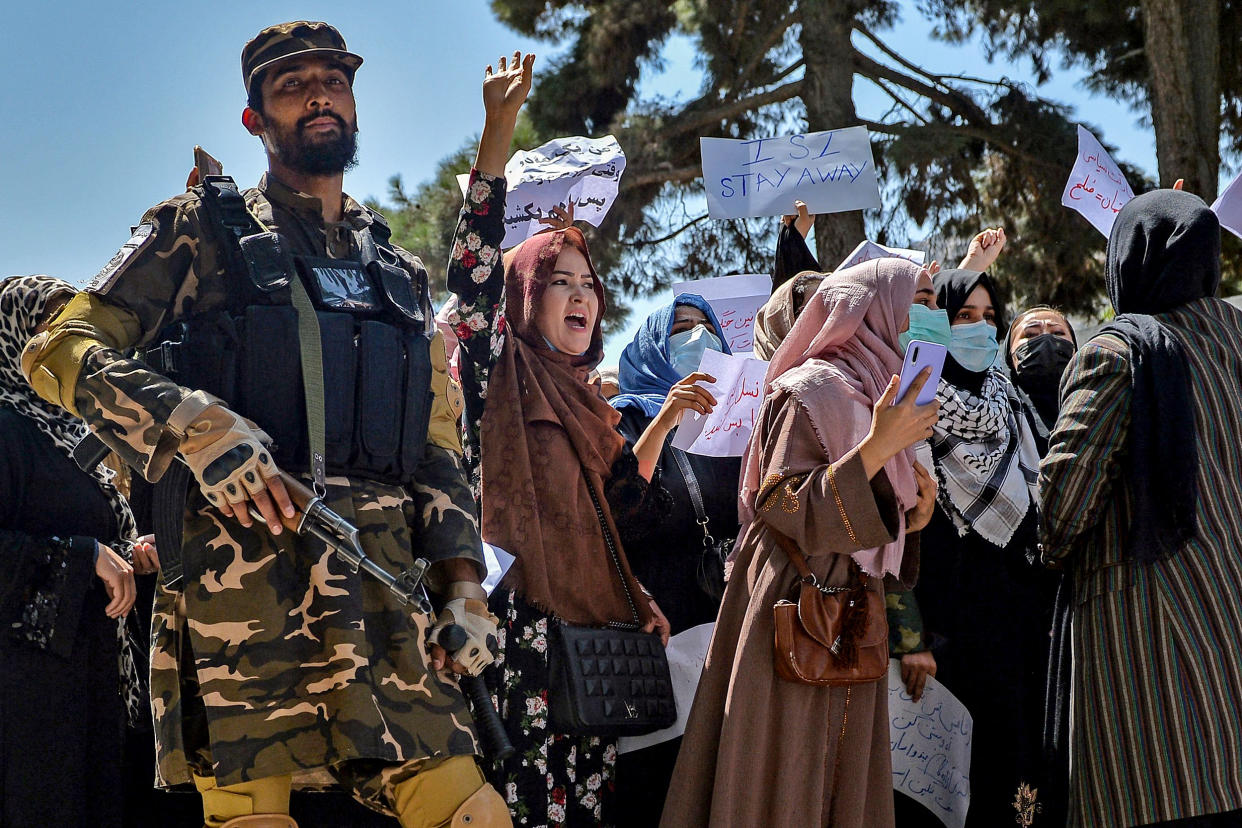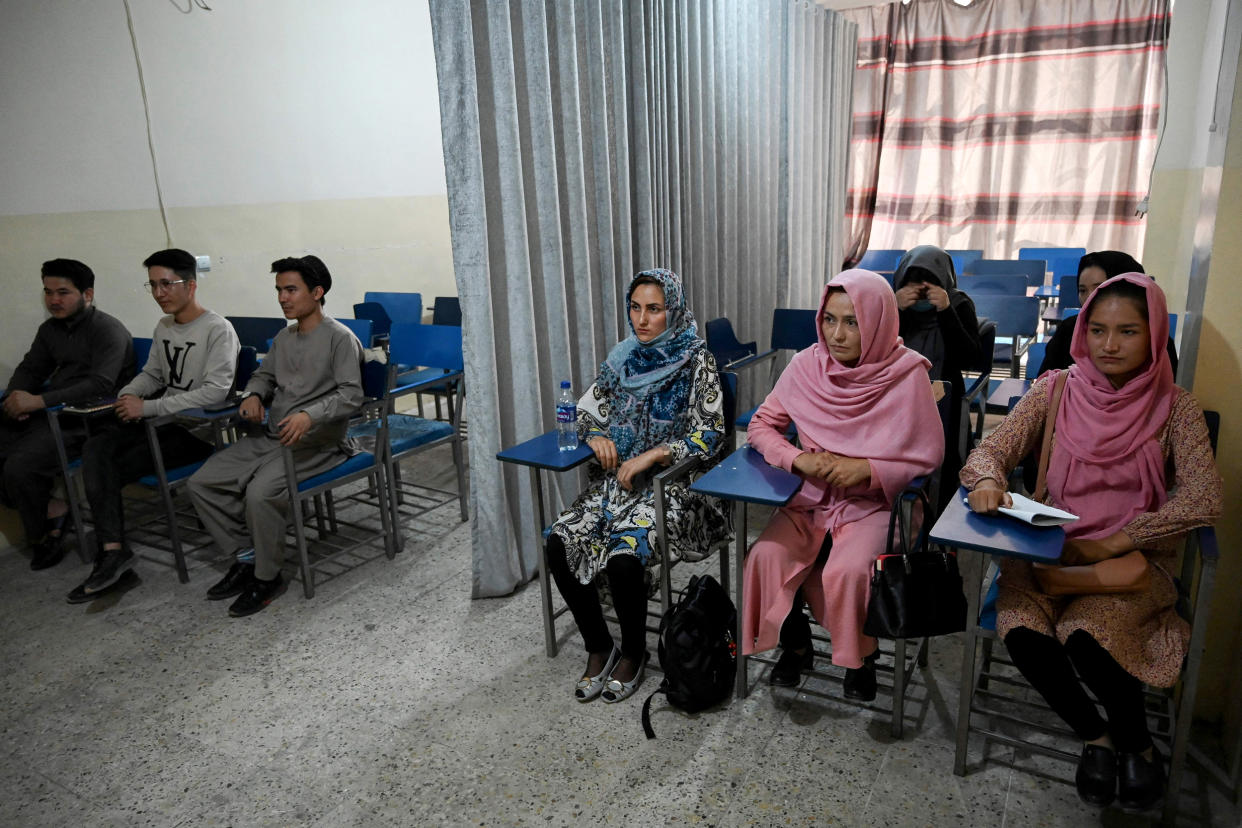Women join protests on Afghan streets in defiance of Taliban rule
Hundreds of Afghans, many of them women, protested in Kabul on Tuesday, chanting slogans against neighboring Pakistan and expressing support for rebels in the last part of the country resisting Taliban rule.
Video posted online showed protesters near the Pakistan Embassy in Kabul holding signs saying "#SanctionPakistan" and "#StandWithPanjshir." Elsewhere on a street near the Iranian and Turkish embassies, video emerged of Taliban fighters firing into the air to disperse the protests.
Panjshir province, around 60 miles north of Kabul, has drawn resistance fighters from across Afghanistan since the Taliban seized power last month. Pakistan has been accused of assisting the Taliban.

"I have come today to ask why Pakistan is destroying Panjshir. I am from Panjshir," a Kabul protester told a reporter at the scene. "People need to express their anger, men and women, they must not stay silent."
The Taliban said Monday that they had captured Panjshir, which was disputed by the rebel forces, known as the National Resistance Front of Afghanistan. NBC News could not independently verify the Taliban's claims or the resistance denials.
Later on Monday, Ahmad Massoud, leader of the National Resistance Front, called for a general uprising against the Taliban.
Pakistan and its intelligence service, the Inter-Services Intelligence (ISI), have a long history of ties to the Taliban. The head of the ISI, Lt. Gen. Faiz Hameed, visited Kabul over the weekend. At a news conference on Monday, Taliban spokesman Zabihullah Mujahid confirmed that Hameed had met with Abdul Ghani Baradar, the group's political leader, but said no country would be allowed to interfere in Afghanistan's affairs.
Download the NBC News app for breaking news and politics
Though Pakistan stands to gain from a Taliban-ruled Afghanistan, the change in government could also embolden the country's own extremists. A suicide attack that killed at least four security personnel in southwestern Pakistan on Sunday was claimed by the militant group Tehreek-e-Taliban Pakistan, which is separate from the Afghan Taliban but recently renewed its allegiance to the group.
Along with opposition to Pakistan, protesters in Afghanistan have been expressing support for women's rights amid fears that the Taliban will roll them back. Demonstrations have taken place in cities around Afghanistan in recent days, including a march on Monday in the northern city of Mazar-i-Sharif.
The protests began last week in the western city of Herat, where women called on the Taliban to include them in discussions on the new government, according to video from the protest.
"We've worked hard for years to achieve and maintain our rights, abandoning them now is impossible," one speaker said at a rally at the end of the demonstration.
A similar protest in Kabul on Saturday was suppressed by Taliban fighters who used rifle butts and tear gas against the women.

Though Taliban leaders have said that women will be afforded rights within their interpretation of Islamic law, there are already signs of freedoms being curbed. Teachers and students at universities in Kabul and other major cities told Reuters that male and female students were being taught separately or separated by curtains in classrooms.
"I really felt terrible when I entered the class ... We are gradually going back to 20 years ago," Anjila, a 21-year-old female student at Kabul University, told Reuters by telephone.
Mujahid said at the news conference on Monday that women would eventually be "asked to return" to work and that an "inclusive" government would be announced in the coming days. But Taliban leaders have also said there may be no women in cabinet-level positions.
